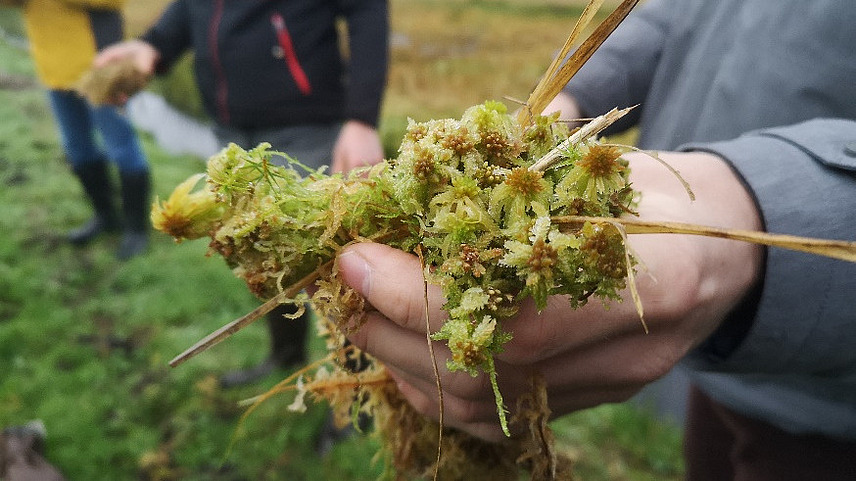MOOSland
MOOSland - demonstrated, discussed, implemented: the path to large-scale implementation of peat moss paludiculture as a sustainable agricultural use of raised bog soils
Project data
MOOSland is a model and demonstration project focused on the large-scale cultivation of peat moss on rewetted, degraded raised bogs. Peat moss offers a renewable raw material alternative to traditional peat—commonly used in horticulture—bringing significant benefits for both climate protection and the economy.
In natural raised bogs, peat moss thrives under nutrient-poor, water-saturated conditions. However, many of these bogs have been drained and converted into grasslands, which leads to harmful greenhouse gas emissions. Rewetting these peatlands is essential to stop this process. Peat moss is uniquely suited for this purpose, as it can store up to 30 times its own weight in water. Moreover, peat moss biomass possesses physical properties similar to the peat it forms, making it an ideal, sustainable substitute for peat in horticultural substrates. Cultivating peat moss on rewetted peatlands—known as paludiculture—not only supports environmental restoration but also creates economic opportunities.
The MOOSland project is currently optimizing two pilot sites in the districts of Ammerland and Diepholz in Lower Saxony and expanding cultivation by an additional seven hectares. Working closely with stakeholders, the project aims to identify barriers and develop solutions for scaling up beyond the pilot areas. To share our findings and promote wider adoption, we place strong emphasis on knowledge transfer. Alongside informational materials, we are developing curriculum content and a traveling exhibition. Field days on our test sites bring peat moss paludiculture to life and provide hands-on learning experiences.
If you’re interested in learning more or participating, please don’t hesitate to contact us.

Knowledge transfer and public relations (AP 6): M. Sc. Pia Müller & Celestina Maria Machado da Costa (since 01.01.2024) & Joana Kakarli (since 01.04.2025):
- Responsible for public relations and knowledge transfer,
- Planning and implementation of workshops and conferences,
- Planning and implementation of field days and guided tours of the experimental plots
- Creation of the peat moss classroom in the EFMK and exhibition modules on paludiculture
- Development of a handbook on peat moss paludiculture,
- Further training of area-relevant actors,
- Networking
The two employees in work package 5 "Stakeholder management and transformation process" will start their work in MOOSland on 01.04.2024.
Funded by the Federal Ministry of Food and Agriculture (BMEL) as part of the "Renewable Resources Funding Program" and supported by the Fachagentur Nachwachsende Rohstoffe e.V. (FNR)
